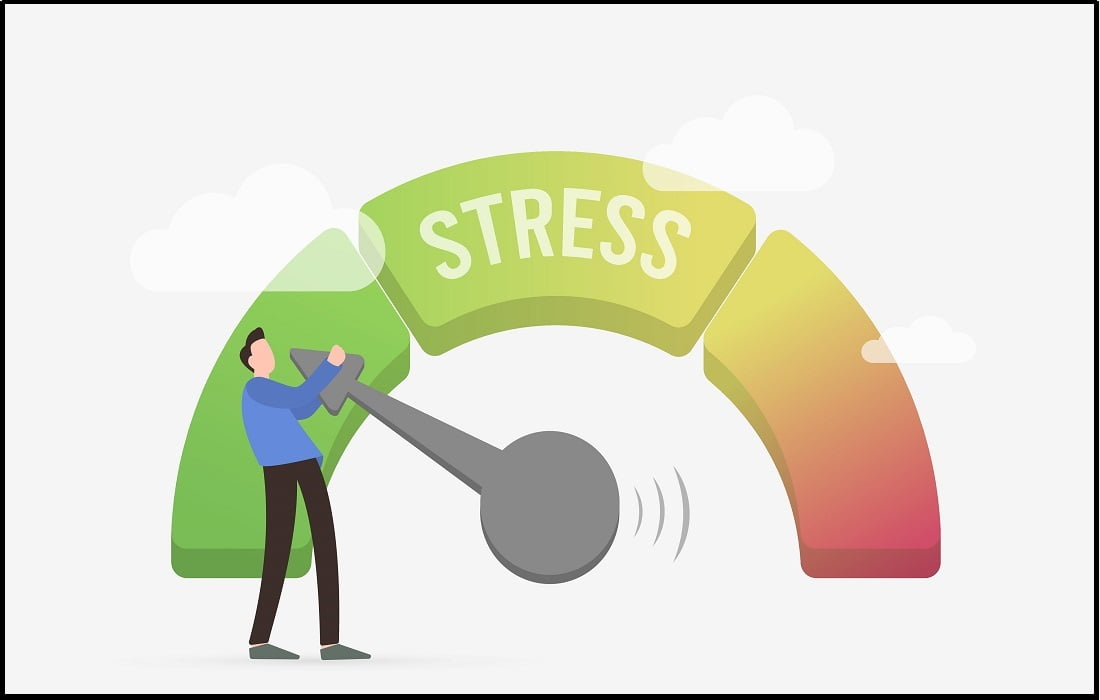Stress and sleep are connected with each other. Good sleep can help you reduce your stress levels, and stress can impact your sleep. To help you to get better sleep and reduce stress, we have put together this article to discuss
In today’s fast-paced world, getting a good night’s sleep seems like a difficult task. Stress, anxiety, and the demands of daily life have an impact on your sleep quality, leaving you restless and exhausted.
But what exactly is it about stress that affects our sleep? We will examine the connection between sleep and stress and how you can improve sleep and stress levels with proper sleep hygiene and relaxing techniques in your nighttime routine.
This blog will focus on essential strategies for relaxing, reducing stress, and getting good sleep.
Key Takeaways
• Establish a relaxing pre-sleep routine.
• Limit screen time before bed.
• Engage in calming activities like reading or listening to soothing music.
• Practice deep breathing or meditation to unwind.
• Avoid heavy meals, smoking, caffeine, and alcohol close to bedtime.
• Create a comfortable sleep environment with proper bedding and room temperature.
• Write down worries or tasks to clear your mind.
• Try gentle stretches or yoga to release tension.
• Use aromatherapy, like lavender, to promote relaxation.
• Keep a consistent sleep schedule by going to bed and waking up at the same time.
• Use a white noise machine or earplugs to block out disturbances.
• Avoid engaging in stressful activities or discussions right before bed.
• Consider professional help if stress or sleep issues persist.What is stress, and how does it affect your sleep?
Stress is a normal response to observing threats activated by the release of stress hormones such as cortisol and adrenaline. These hormones increase the heart rate, blood pressure, oxygen delivery to the muscles, and alertness. These responses allow humans to run away from danger. The sources of stress in modern life may be different, but the body’s response stays consistent. When the stress response doesn’t stop, the body remains stressed, which raises the levels of stress hormones. Sleep is necessary for physical and mental health. It allows the body to process thoughts and emotions, repair muscles, remove waste products, and rebalance the body.

What is Microdosing, or micro-dosing
Microdosing, or micro-dosing is a medical technique to investigate the impact of drug behavior in humans by giving doses so low that they won’t affect the whole human body. Microdosing can play an excellent role by affecting an anxious person’s serotonin activity. Serotonin is a “feel good” neurotransmitter (chemical messenger). This impacts a person’s various physiological and psychological processes within the human body that create feelings of good and stabilize mood.

13 Tips to Reduce Stress
These 13 tips can help you reduce stress and sleep well all the time:
1- Focus on Sleep Hygiene:
Setting a consistent bedtime and wake time helps regulate the body’s internal clock and improves sleep quality over time.
2- Practice Relaxing Techniques:
Before bedtime, use relaxing techniques to calm your mind and get your body ready for sleep. These include deep breathing, gradual muscle relaxation, and mild stretches.
3- Incorporate Stress Reduction Techniques.
Stress management is crucial for increasing sleep quality, so add activities like meditation, writing, or music into your daily routine to keep daytime stress from interfering with sleep.
4- Establish a Bedtime Routine.
A regular pre-sleep routine includes soothing activities like taking a bath, reading, or practicing yoga to help the body ease up and get ready for sleep.
5- Deep Sleep
Deep sleep is essential for recovery since it refreshes the mind and body, promoting well-being and energy. One of the best ways in this modern age to improve your mental well-being is by using the best fitness apps for deep sleep.
6- Practice Mindfulness Before Sleeping.
Mindfulness practices, like deep breathing, meditation, or visualization, can help to remove racing thoughts and worries from the mind, fostering relaxation and quietness.
7- Sleep Quality and Nighttime Relaxation
Nighttime relaxation provides optimal sleep quality and nurtures the body and mind for recovery and enhanced well-being.
8- Engage in Calming Activities.
Calming activities like yoga, aromatherapy, or herbal tea might improve sleep by providing a quiet environment that prepares the body and mind for restful sleep.
9- Embrace Pre-sleep Rituals.
Create pre-sleep rituals, like dimming lights, reading, or expressing gratitude, to inform the brain to unwind and rest.
10- Perform Sleep-inducing Practices.
By maintaining a cold, dark, and quiet bedroom, buying a cozy mattress, and using sleep-inducing practices for good and quick sleep.
11- Stress Management
Regular physical activity, a nutritious diet, and good time management are crucial to reducing stress and maintaining a stress-free sleeping environment.
12- Focus on Bedtime Stress Relief
Consider writing down your anxieties in a journal before bedtime to help you relax and release tension.
13- Relaxing Bedtime Habits
Adopt relaxing bedtime habits. Turn off your electronics and create a calm atmosphere for restful sleep.
Frequently Asked Questions
What is the connection between stress and sleep?
High stress levels can negatively impact sleep quality and duration, often leading to insomnia or disrupted sleep patterns.
What is Microdosing, or micro-dosing?
Microdosing, or micro-dosing is a medical technique to investigate the impact of drug behavior in humans by giving doses so low that they won’t affect the whole human body.
What is the role of sleep in mental health?
Sleep plays an important role in maintaining optimal mental health skills by regulating mood, cognitive function, and emotional well-being.
How do I reduce stress before bed?
Practicing a calming bedtime routine, such as reading or taking a warm bath, can help reduce stress before sleep.
How can you improve the quality of your sleep experience?
Maintain a regular sleep schedule, create a comfortable sleep environment, and limit screen time before bed to increase and improve sleep quality.
How can we help you stop stressing and get good sleep?
By practicing stress-reduction strategies like mindfulness, exercise, and maintaining a consistent sleep routine, you can promote better sleep and reduce stress.
Conclusion
To sum up, following these 13 tips can significantly reduce pre-sleep stress, helping you achieve a peaceful and restful night’s sleep. By creating a calming bedtime routine, embracing relaxation techniques, and optimizing your sleep environment, you can sleep as peacefully as a baby and wake up feeling refreshed.

